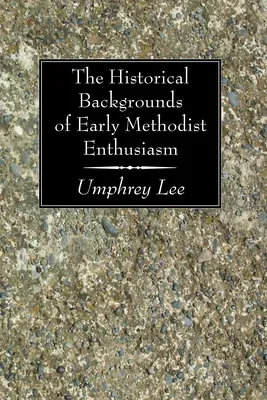Umphrey Lee
(Author)The Historical Backgrounds of Early Methodist EnthusiasmPaperback, 6 January 2009

Qty
1
Turbo
Ships in 2 - 3 days
In Stock
Free Delivery
Cash on Delivery
15 Days
Free Returns
Secure Checkout
Print Length
176 pages
Language
English
Publisher
Wipf & Stock Publishers
Date Published
6 Jan 2009
ISBN-10
1606083724
ISBN-13
9781606083727
Description
Product Details
Author:
Book Format:
Paperback
Country of Origin:
US
Date Published:
6 January 2009
Dimensions:
21.62 x
14.22 x
0.99 cm
Genre:
Christian
ISBN-10:
1606083724
ISBN-13:
9781606083727
Language:
English
Location:
Eugene
Pages:
176
Publisher:
Weight:
217.72 gm

